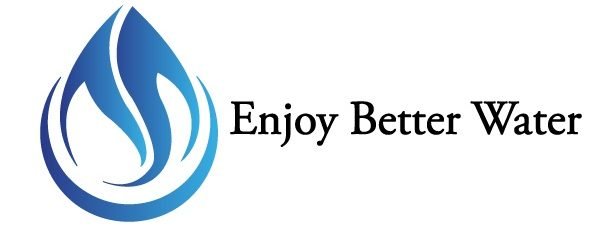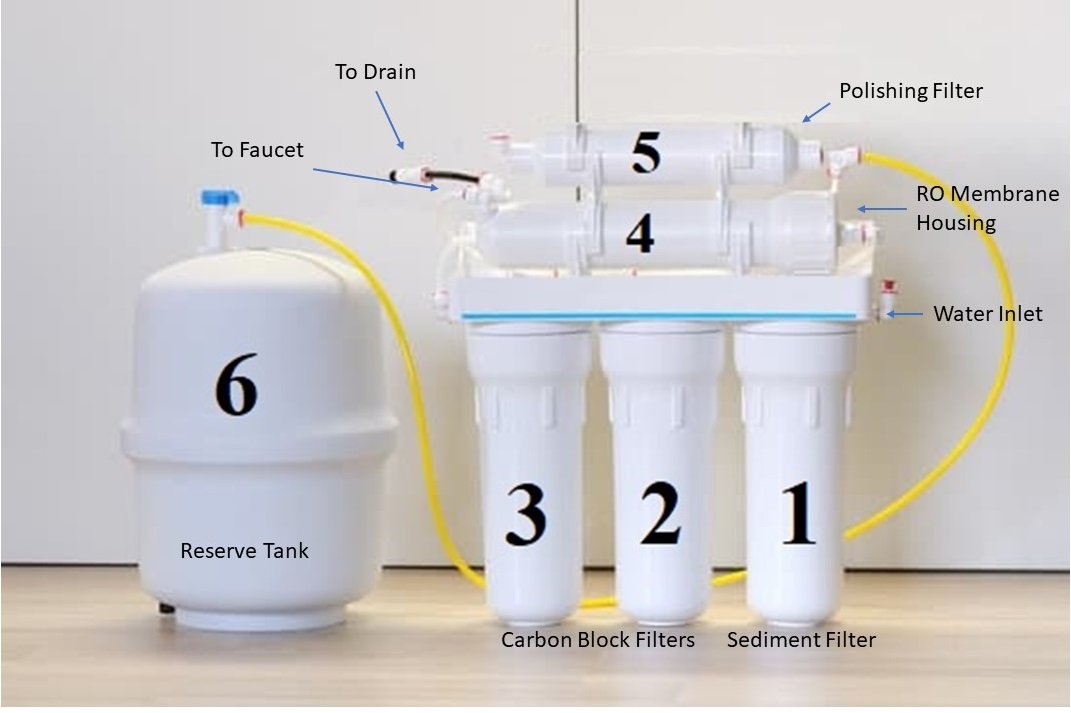Introduction
Does drinking reverse osmosis water leave you more parched than quenched? It’s a question many of us ponder, given the common concern about dehydrated caused by this purified form of H2O.
This blog will decipher the facts from myths surrounding reverse osmosis water and its impact on your hydration status. Stick around; we’re about to dive into some thirst-quenching knowledge.
Key Takeaways
- Drinking reverse osmosis water alone does not cause dehydration.
- Reverse osmosis water may lack minerals and electrolytes, but maintaining proper hydration involves a balanced diet and fluid intake from various sources.
- Replenishing minerals and electrolytes through alternative sources or alkaline water options can help ensure adequate hydration with reverse osmosis water.
- Proper hydration depends on individual needs, fluid intake from all sources, and incorporating mineral-rich foods into your diet.
Understanding Reverse Osmosis Water
Reverse osmosis water is a type of purified water that goes through a filtration process to remove impurities.
How reverse osmosis works
Reverse osmosis is a fascinating water filtration process that utilizes technology to produce purified drinking water. Here’s how it works:
- Water from your tap gets forced under pressure into a semi – permeable membrane.
- This semi – permeable membrane has minute pores, which allow only small molecules such as water to pass through.
- The impurities and contaminants like heavy metals, chlorine, and other harmful substances are too large to pass through the membrane.
- These caught contaminants are flushed away, leaving behind clean drinking water.
- The reverse osmosis system includes a post – filtration stage where the water passes through an activated carbon filter.
- This extra filtration step catches any lingering taste or odor – causing particles that may have slipped past the initial stages.
- Finally, the RO – treated water is ready for consumption – safe, clean and pure.
Why some believe it can cause dehydration
Many people hold the belief that drinking reverse osmosis water can potentially cause dehydration. The primary reason behind this notion is based on the fact that reverse osmosis systems filter out almost all minerals from tap water along with other impurities and contaminants.
Essential minerals such as magnesium, calcium, and sodium naturally present in normal drinking water play crucial roles in maintaining the body’s electrolyte balance which aids hydration.
Therefore, critics argue that consuming de-mineralized or low-mineral content RO purified water could disrupt this balance subsequently leading to possible dehydration risks over time; thus raising health concerns about daily intake of pure but mineral-deficient reverse osmosis water.
The Truth About Reverse Osmosis Water and Hydration
Reverse osmosis water does not dehydrate you, but it can potentially lead to a lack of essential minerals and electrolytes in your body.
Does reverse osmosis water dehydrate you?
Contrary to common misconceptions, drinking reverse osmosis water does not dehydrate you. While it is true that the reverse osmosis process removes minerals from water, it doesn’t mean your hydration levels will plummet.
The main reason for dehydration is typically insufficient fluid intake, not necessarily based on the type of water consumed. When you drink an adequate amount of any purified form of water, including RO (reverse osmosis) filtered water, your body gets what it needs to maintain hydration and operate efficiently.
Nevertheless, because this filtration technique takes out some beneficial minerals usually found in tap or natural spring waters – like calcium and magnesium – certain individuals might choose to supplement their diet with foods rich in these nutrients or add specific re-mineralizing filters to their purification system.
But remember – it’s a matter about balancing fluid intake with mineral consumption rather than the dehydrating effects of clean ro-filtered water itself.
Lack of minerals and electrolytes
One concern often raised about drinking reverse osmosis water is its potential lack of minerals and electrolytes. Reverse osmosis filtration systems are designed to remove impurities, including minerals, from the water.
While this process makes the water pure and clean, it can also result in a lower mineral content compared to other types of water. Minerals and electrolytes play crucial roles in maintaining hydration levels and overall health.
However, it’s important to note that our bodies obtain these essential nutrients from various sources such as food and other beverages. So while reverse osmosis water may not provide these minerals directly, incorporating a balanced diet with mineral-rich foods and incorporating other fluids into your daily intake will help ensure you’re getting sufficient amounts of these vital nutrients for optimal hydration.
Factors that Affect Hydration
Factors affecting hydration include the amount of fluid intake from various sources, individual hydration needs, and maintaining a balanced diet with adequate electrolyte intake.
Fluid intake from all sources
Proper hydration is essential for overall health and well-being. While the type of water you drink, including reverse osmosis (RO) water, is important, it’s also crucial to consider your fluid intake from other sources.
This includes beverages like tea, coffee, and juice as well as foods with high water content such as fruits and vegetables. By ensuring a balanced approach to fluid intake, you can maintain optimal hydration levels regardless of the type of water you choose to drink.
Individual hydration needs
Our individual hydration needs can vary based on several factors, such as our body size, activity level, and climate. It’s important to remember that not everyone requires the same amount of water each day.
While the general recommendation is to drink 8 cups (64 ounces) of water per day, this can be adjusted based on your specific needs.
Factors like sweating, high-intensity exercise, or living in a hot and humid environment may increase your fluid requirements. On the other hand, if you have a sedentary lifestyle or live in a cooler climate, you may need less water.
Listen to your body and pay attention to signs of dehydration such as dry mouth, dizziness, or dark urine.
To ensure adequate hydration with reverse osmosis water, it’s essential to drink enough throughout the day. Don’t solely rely on thirst as an indicator since by the time you feel thirsty, you might already be mildly dehydrated.
Balanced diet and electrolyte intake
A balanced diet is essential for maintaining proper hydration levels, even when drinking reverse osmosis water. Here are some key factors to consider:
- Include a variety of nutrient – rich foods in your diet, such as fruits, vegetables, whole grains, lean proteins, and healthy fats. These foods provide essential minerals and electrolytes that contribute to overall hydration.
- Consume foods that are naturally high in electrolytes, such as bananas (potassium), spinach (magnesium), and avocados (sodium). These electrolytes help regulate fluid balance in the body and support optimal hydration.
- Incorporate sources of calcium into your diet, as this mineral plays a vital role in maintaining proper fluid balance. Good sources of calcium include dairy products, leafy greens like kale and broccoli, and fortified plant-based milks.
- Avoid excessive consumption of processed or sugary foods and beverages. These can deplete your body’s water reserves due to their high salt or sugar content.
- Drink fluids other than water to supplement your hydration needs. This may include herbal teas, coconut water, or homemade fruit-infused waters. These alternatives can add flavor while providing extra nutrients.
Ensuring Proper Hydration with Reverse Osmosis Water
To ensure proper hydration with reverse osmosis water, it is important to replenish minerals and electrolytes through other sources such as a balanced diet and supplements. Additionally, considering alkaline water options can help maintain pH levels in the body.
Lastly, drinking sufficient amounts of filtered water throughout the day is essential for optimal hydration.
Replenishing minerals and electrolytes
- Adding a pinch of sea salt to your reverse osmosis water can help replenish minerals and electrolytes.
- Consuming mineral – rich foods like bananas, spinach, and nuts along with reverse osmosis water can maintain electrolyte balance.
- Opting for alkaline water options, such as adding lemon or cucumber slices to your reverse osmosis water, can provide additional minerals and electrolytes.
- Consider using mineral drops or supplements specifically formulated to add essential minerals back into your water.
- Drinking a variety of fluids, including herbal teas and natural fruit juices, can also contribute to overall hydration and mineral intake.
Alkaline water options
Another option to ensure proper hydration when drinking reverse osmosis water is to choose alkaline water. Alkaline water has a higher pH level, typically above 7, which can help neutralize acidity in the body and promote better hydration.
It is believed to have antioxidant properties and may offer additional health benefits. You can find alkaline water options in stores or even create your own at home using special filters or additives.
By incorporating alkaline water into your hydration routine, you can further optimize your overall well-being and enjoy the refreshing effects of properly balanced pH levels.
Drinking sufficient amounts
To ensure proper hydration when drinking reverse osmosis water, it is important to focus on consuming sufficient amounts throughout the day. Adequate fluid intake helps replenish lost fluids and maintain optimal hydration levels in our bodies.
The general recommendation is to drink at least 8 cups (64 ounces) of water per day, but individual needs may vary based on factors such as activity level, climate, and overall health.
By staying hydrated with reverse osmosis water and incorporating other sources of hydration like fruits and vegetables into your diet, you can support your body’s water balance for optimal health.
Frequently Asked Questions
Q: Can drinking reverse osmosis water cause dehydration?
A: No, drinking reverse osmosis water does not directly cause dehydration.
Q: What is reverse osmosis (RO) water?
A: Reverse osmosis (RO) is a water treatment process that uses a semipermeable membrane to filter out contaminants from water.
Q: Does reverse osmosis remove essential minerals from water?
A: Yes, reverse osmosis removes minerals from water as it is designed to remove various contaminants, including minerals.
Q: Can drinking reverse osmosis water lead to mineral deficiency?
A: Drinking reverse osmosis water alone is unlikely to lead to mineral deficiency as the minerals needed by the body are obtained from a balanced diet.
Q: Is reverse osmosis water safe to drink?
A: Yes, reverse osmosis water is considered safe to drink as it effectively removes many contaminants found in tap water.
Q: Can drinking reverse osmosis water have any health risks?
A: Drinking reverse osmosis water does not pose any significant health risks. However, some argue that the low-mineral content of RO water may have a negligible impact on your health.
Q: Can reverse osmosis filters add minerals back into the water?
A: Some reverse osmosis systems have additional stages or filters that add minerals back into the water, but not all systems do. It depends on the specific RO unit.
Q: Is drinking reverse osmosis water recommended by the World Health Organization?
A: The World Health Organization does not specifically recommend drinking reverse osmosis water. Their focus is on ensuring access to safe drinking water for all.
Q: Should I drink water filtered by a reverse osmosis system?
A: Drinking water filtered by a reverse osmosis system is a personal choice. It removes many contaminants but also reduces mineral content. Consider your own water quality and health needs.
Q: Can drinking reverse osmosis water affect the quality of water in my body?
A: Drinking reverse osmosis water does not directly affect the quality of water in your body. Your body regulates its water balance regardless of the type of water consumed.
Conclusion: Making Informed Choices for Hydration
In conclusion, while it’s true that reverse osmosis water lacks minerals and electrolytes, drinking it alone does not necessarily cause dehydration. Proper hydration depends on various factors, including fluid intake from all sources, individual needs, and a balanced diet.
To ensure adequate hydration with reverse osmosis water, it is essential to replenish minerals and electrolytes through alternative sources or alkaline water options. Ultimately, making informed choices about your hydration routine can help you stay properly hydrated without compromising the benefits of reverse osmosis water filtration.

